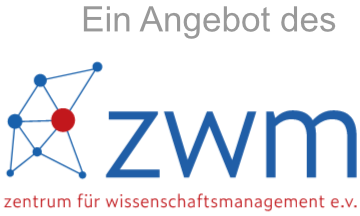Sie sind hier
| Kontakt: | Dr. Christoph Mayer | ||
| Ort: | 26121 Oldenburg | ||
| Web: | https://www.offis.de/fileadmin/content/files/karriere/OFFIS-JobAd_Groupmanagemen… | Bewerbungsfrist: | 31.01.19 |
R&D-Division: Energy Contract duration: 2 years (option of permanent employment) Group: Simulation and Agents in Multiple Domains Start: February 1st, 2019
YOUR TASKS:
In coordination with the directors and professors in the energy division you will be responsible for
strategic development of the group’s R&D-activities,
employee management,
the group’s external representation,
acquisition of research projects and of direct commissioning from industry,
contributions of own R&D content and publications as well as
operative execution of R&D-projects, in particular project- and personnel management.
YOUR PROFILE:
You have already gained first leadership skills.
You have knowledge in the field of software engineering or project management.
Preferred are candidates with knowledge in (co-)simulation or multi-agent technologies.
You share our passion for application-oriented research.
You hold a scientific degree in computer science, electrical engineering or a related field, doctorate preferred.
Knowledge of German is a plus.
EMPHASIS OF THE RESEARCH GROUP:
The SAM group researches and develops technologies to simulate and optimize complex energy systems and their interaction with information and communication technologies, the electrical grid and its components, the market as well as generation and consumption. An important task is to strategically develop the internationally used co-simulation framework mosaik and the integrated frameworks for multi-agent systems. The aim of the group is to use its co-simulation approach as an industry-relevant test-environment for distributed control strategies.
WHAT WE OFFER YOU:
Professional and socially attractive working environment with an international focus
Excellent opportunities for the development of professional/personal skills e.g. in cooperation with the University of Oldenburg
Support for learning the German language
Corporate culture characterized by tolerance and openness
Salary according to the collective agreement for the public sector (depending on qualification group E14 TV-L)
Severely disabled applicants are given preferential consideration in the event of equal qualification
Family friendliness through great flexibility in organizing your working time Part-time employment is possible.
CONTACT: Please send your application to:
bewerbung@offis.de
Contact Person:
Dr. Christoph Mayer Tel: 0441 9722-185 mayer@offis.de
Postal Adress:
OFFIS e. V.
Personalabteilung
Escherweg 2 | 26121 Oldenburg
https://www.offis.de/fileadmin/content/files/karriere/OFFIS-JobAd_Groupmanagement_Simulation_and_Agents_in_Multiple_Domains.pdf
CONTACT: Please send your application to:
bewerbung@offis.de
Contact Person:
Dr. Christoph Mayer Tel: 0441 9722-185 mayer@offis.de
Postal Adress:
OFFIS e. V.
Personalabteilung
Escherweg 2 | 26121 Oldenburg
- Bisher keine Ordner/Dateien vorhanden.
-
Group Management Simulation and Agents.pdf
168.25 KB | 28.11.18 ( )
-
Keine Inhalte
Is getting a PhD basically ‘project management’? Rethinking qualifying strategies for early career researchers
Project-orientation and management logics in science have fundamentally altered research and scientific careers. This article contributes to ongoing research about early career researchers’ self-definition as ‘24-hour scientists’ and deals with their involvement in processes of self-precarisation. It focuses on qualifying strategies and soft-skills training for scholars. These training programs and advice often encompass so-called key competences for scholars, such as time and selfmanagement. I argue that it is time to redefine the criteria for successfully completing a PhD by breaking with management rhetoric.
Quellen:Zeitschrift für Hochschulentwicklung, Sonderheft „Development and Socialization of Academics“, 11/5: 91-107
- Bisher keine Ordner/Dateien vorhanden.
-
Is getting a PhD basically project management_ZfHe_Weber 2016.pdf
388.35 KB | 04.10.16 ( )
-
Keine Inhalte


